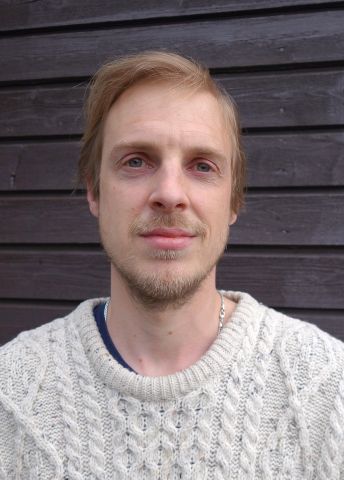
Program for mathematics 2017
Grant to recruit an international researcher
for a postdoctoral position
David Witt Nyström
Chalmers University of Technology and the University of Gothenburg
Grant to recruit an international researcher
for a postdoctoral position
David Witt Nyström
Chalmers University of Technology and the University of Gothenburg
New tools put old results in a new light
Assistant Professor David Witt Nyström will receive funding from the Knut and Alice Wallenberg Foundation to recruit an international researcher for a postdoctoral position at the Department of Mathematics, Chalmers University of Technology and the University of Gothenburg, Sweden.
Algebraic geometry, which has its roots in classical antiquity, is one of the oldest and most extensive branches of mathematics. New theories within its domain continue to arise, creating new methods for solving as yet unproven problems. Due to the wealth of new ideas, existing fields of mathematical research have been divided into smaller branches, such as complex geometry, which is at the heart of the current project.
Algebraic geometry studies sets consisting of solutions to polynomial equations. Such solution sets can take the form of circles, ellipses, spheres, and other geometric objects. For example, two points can be associated with a one-dimensional family of circles crossing both points. This is an example of a linear series, which is an important field of study in algebraic geometry.
In the beginning of the 1990s, a Russian-American mathematician, Andrei Okounkov, introduced a way of associating each linear series with a convex body, called an Okounkov body. In 2006 he received the most prestigious award in mathematics, the Field’s medal, which is awarded to eminent mathematicians under forty years old.
These convex Okounkov bodies have been successfully used to explain the properties of linear systems. The theory of linear systems is also connected to Kähler geometry, which is a meeting place for complex geometry, differential geometry, and symplectic geometry. It is assumed that the well-known and fundamental results regarding linear series can be generalized to a broader Kähler setting. Such generalizations would have significant consequences for Kähler geometry. Even though it remains to be seen which generalizations are possible, interesting open problems abound. The proposed collaborator, Ya Deng, who will receive his Ph.D. from the Institute Fourier in Grenoble in May 2017, has already established a strong reputation in his field. Together with David Witt Nyström, he can take on this challenge.
Photo: Setta Aspström